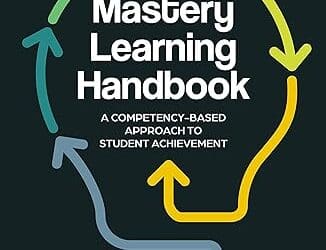Introduction
What does it take to be a great technical trainer, or really, any type of trainer? One would think the answer is deep subject matter expertise. Yet in over 20 years of delivering and directing training delivery, I’ve seen countless brilliant technologists fail as trainers. My conclusion is that there are really just two dimensions on which students will evaluate at trainer every day: 𝐀𝐫𝐞 𝐲𝐨𝐮 𝐜𝐫𝐞𝐝𝐢𝐛𝐥𝐞 and 𝐚𝐫𝐞 𝐲𝐨𝐮 𝐞𝐧𝐭𝐞𝐫𝐭𝐚𝐢𝐧𝐢𝐧𝐠?
“Give a person the answer and you satisfy them today. Teach a person to find a credible source and you gave them a career.”
Credibility
Being credible is obvious. If you don’t know what your teaching, it will show and no student is going to waste their time paying attention. However, the depth of your subject matter expertise isn’t the only criteria for success. I argue it’s not even the most important.
Some enter the teaching role with the misguided belief that they need to be able to answer ever possible question. That’s simply unrealistic. As teachers, we aren’t human search engines. It’s OK to say you don’t know and to look things up later…to a degree. A teacher who takes too many passes will show their ignorance and loose credibility. However, one of my favorite teaching tools is to know very little. Hear me out on this one. Remember that old adage “…teach a person to fish…?” What if we change that around a bit? “Give a person the answer and you satisfy them today. Teach a person to find the answer and you gave them a career.” Not knowing the answer is great! Let’s look that up. Where would I find the answer to that? I actually don’t want people to simply blurt out the answer, I want to hear where they will find the answer. And yes, I give out stars. Not only does this teach them to find the answer but it gives me an opportunity to help them learn to vet their sources. As in many areas of the interweb, tech material can be stale or just plain wrong. One of the reasons the learners pay to be in my classes is to help them find reliable authorities so that they can answer any future questions the will certainly have.
Entertainment
Perhaps even more important is your ability to entertain. This may sound trivial and even demeaning to the profession. But think back. I’m sure at some point you have been in the audience when you don’t care any more what the person is saying, you just want out. We know that student motivation is the crucial factor in learning and boredom seldom motivates. I tell trainers they are entertainers. Success of a trainer is measured in laughter, lively discussion and engagement, participation, questions, community. If these elements are not there students will struggle to take in the technical. More so, they will struggle to process and apply what they heard or saw.
Think back just a couple paragraphs. Remember that I sometimes fake not knowing an answer to prompt students to look it up. I’ve just moved the learners from a passive receiving of data (which they could do on Google without me) to actively learning to search for credible sources. That searching and vetting is the process they will go through countless times after they leave my class. They may forget all the technical details but that skill is the absolute most important one to take home. And that simple act of searching leads to engagement and therein is the opportunity for “entertainment.” Not simply fluffy fun and games but, rather, engagement. Talking, thinking, sharing, laughing… Truly engaging in the subject matter rather than passively receiving it. This is just one example and we could go on to talk about any active learning such as labs, quizzes, polls, discussions, etc.
Ask yourself: “Do I really want to listen to this person for 7 more hours?”
Unicorns and Action Steps
What’s the take away here? If you are a trainer the answer is obvious: focus on these dimensions. If you are a training manager or Director of L&D, the answer is more complex. Leading a successful training organization requires strategic hiring. Finding a deeply technical and highly charismatic teacher is extremely rare (a unicorn, as some say). There has always been debate, especially in the technical space, which one to hire. Is it better to hire a deeply technical person and hope they get better at presenting or should you hire an entertainer and teach them the tech? As polar as this sounds it’s never really so extreme. Great teachers who can ramp quickly usually have a lot of one dimension and, at least some, of the other. But if you can’t find the unicorn which dimension do I hire for? Which can be more easily trained?
In my experience it is far easier to teach a smart entertainer the tech than it is to try to get a smart techie to be engaging in the classroom. I almost always hire the entertainer. Think of it this way, how many times have you seen someone who is trying to be funny but isn’t? It’s hard to do if you just don’t have the natural timing and delivery. I’ve seen very technical folk with doctorates who simply could not get their head out of the lectern no matter how much coaching they received. It just wasn’t the right role for the person. They had the knowledge but just couldn’t convey it to the learners. On the other hand, I’ve coached many great natural speakers on the technical material and seen them go on to fantastic careers in training.
So, if you are a hiring manager of technical trainers, give serious consideration of a candidate’s performance on these two dimensions. I encourage you to resist the urge to be wooed by a candidate’s technical acumen and ask yourself: “Do I really want to listen to this person for 7 more hours?”




